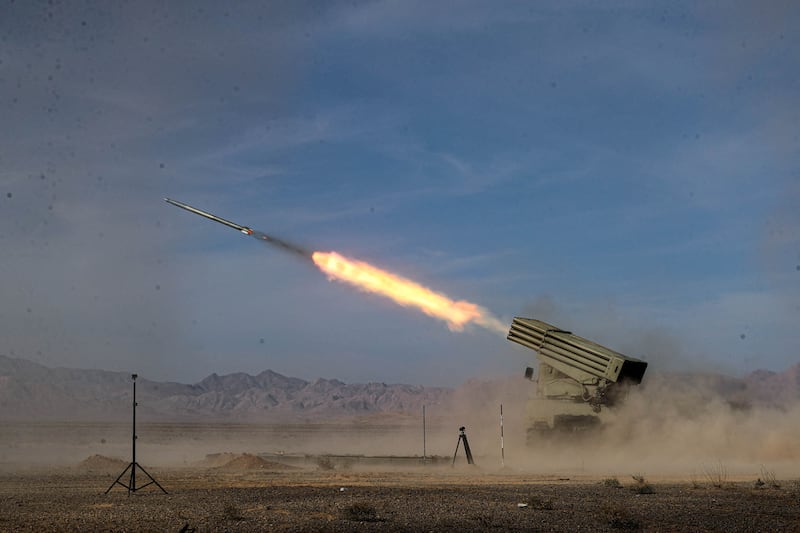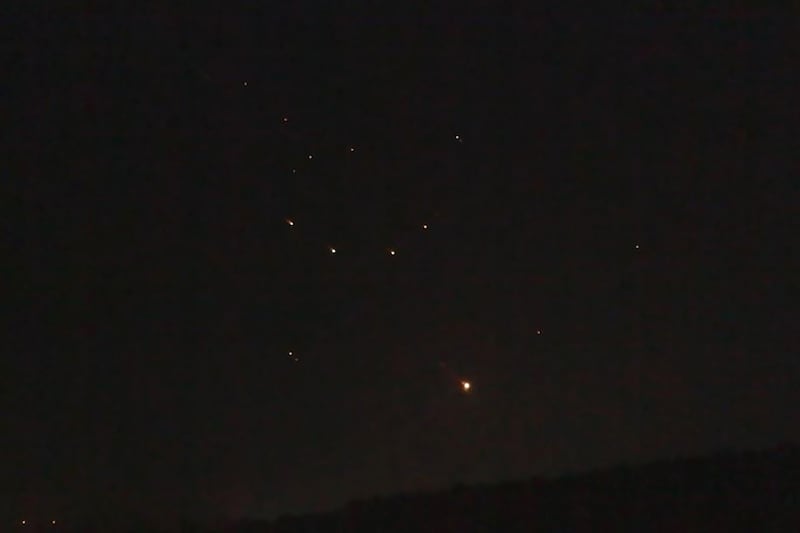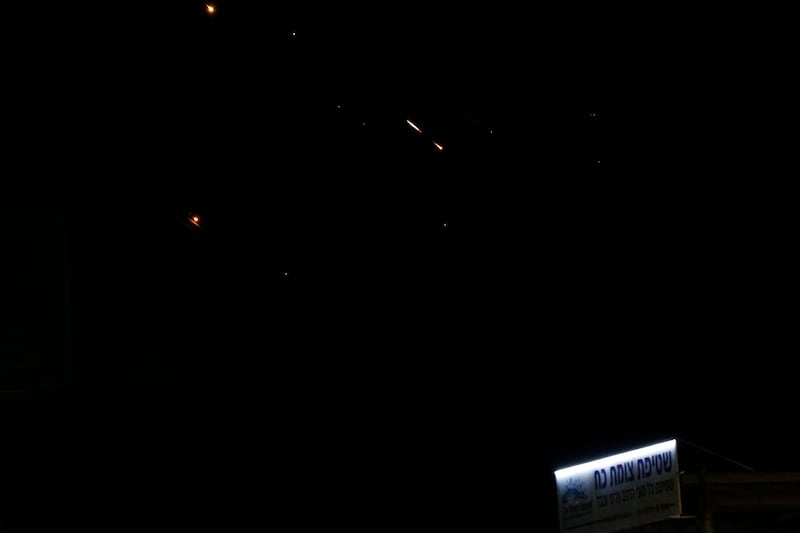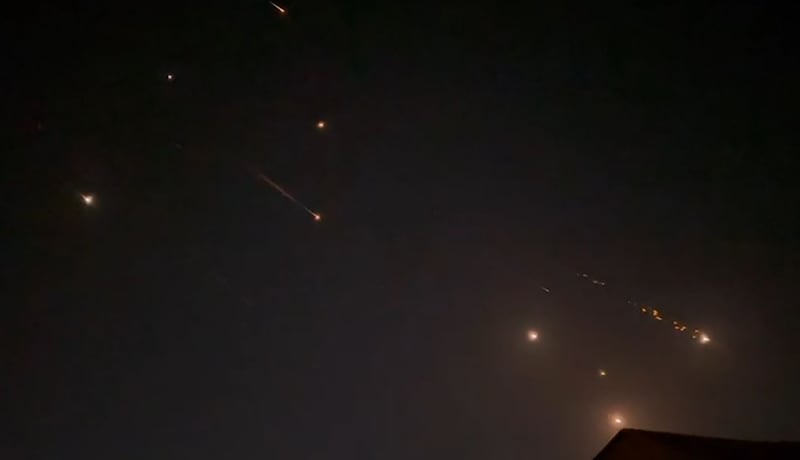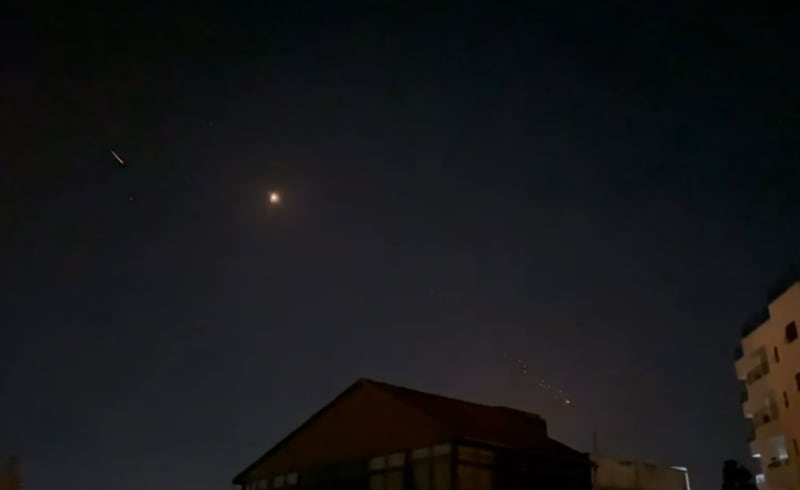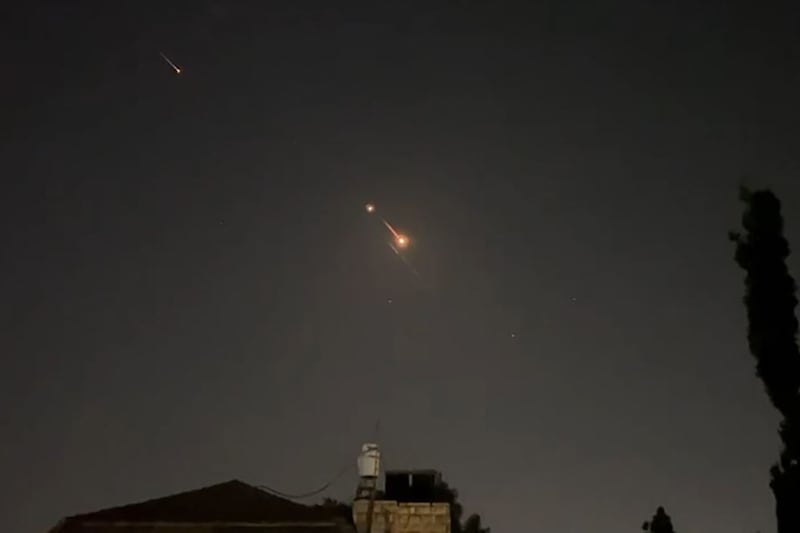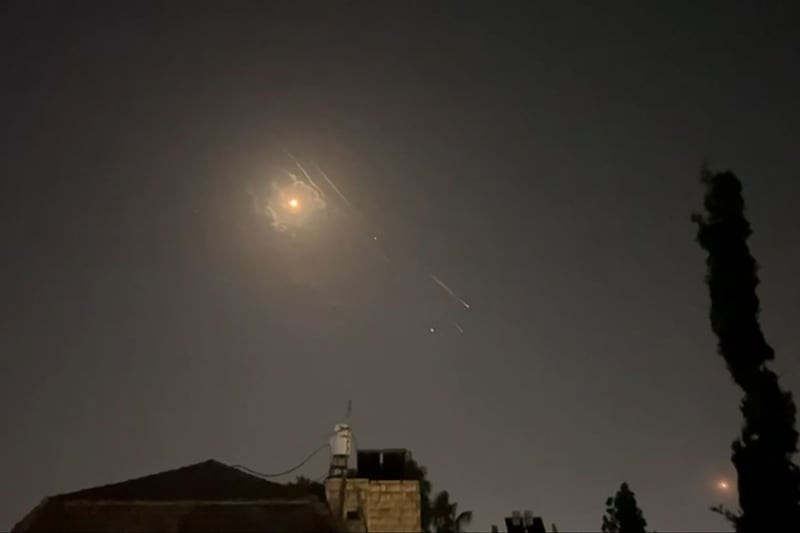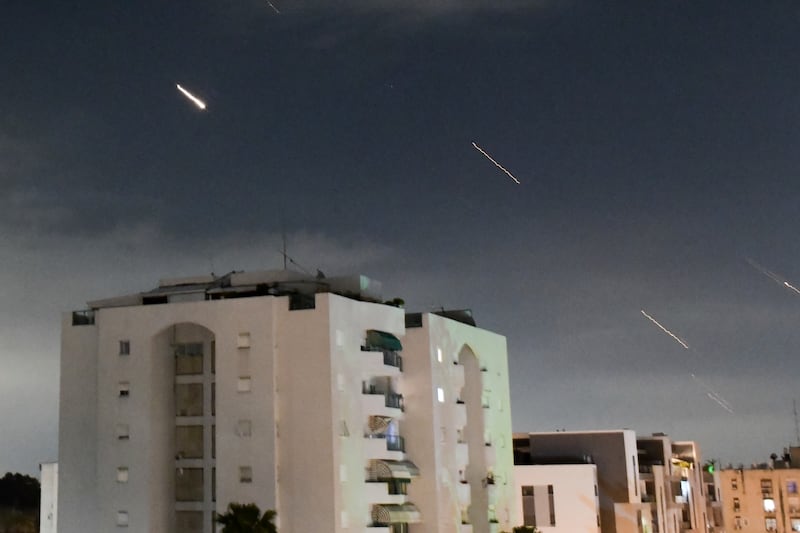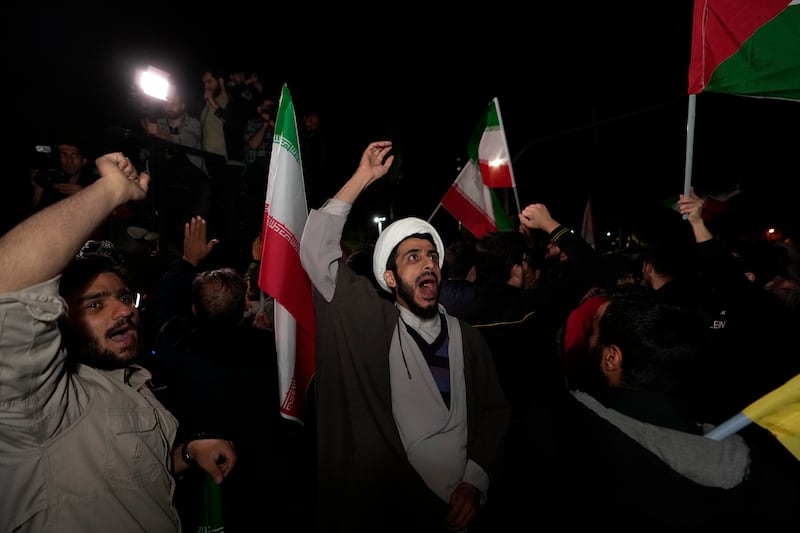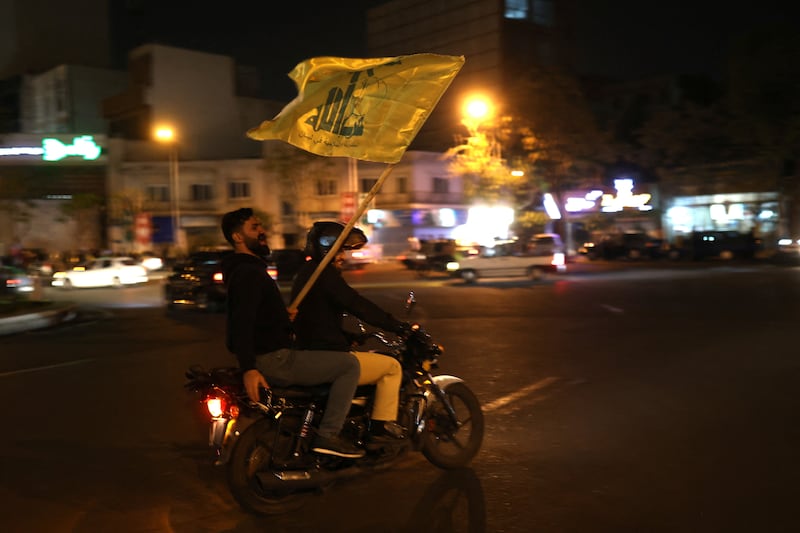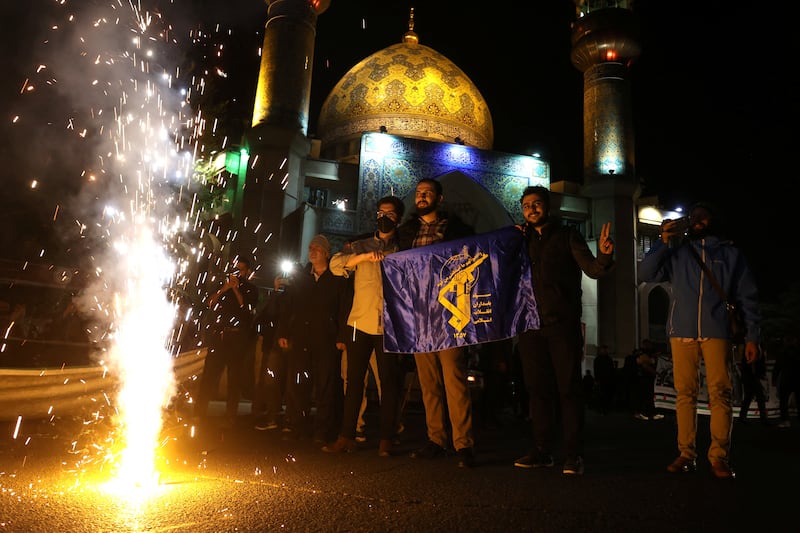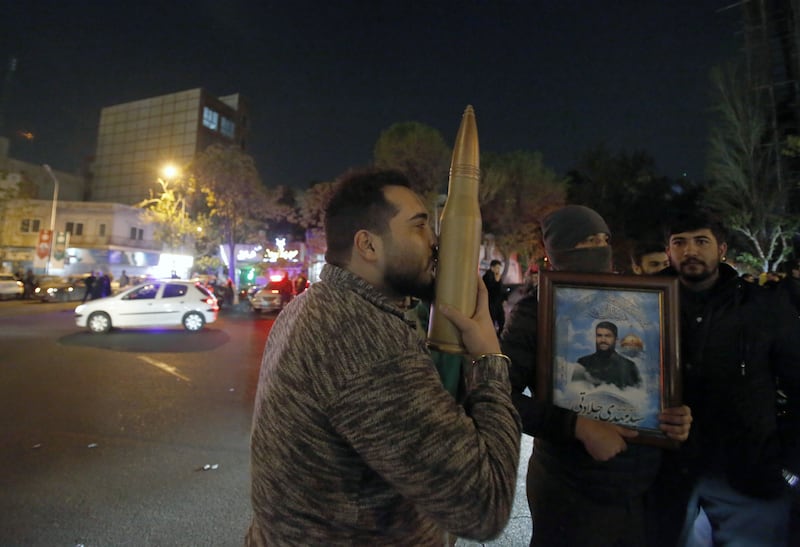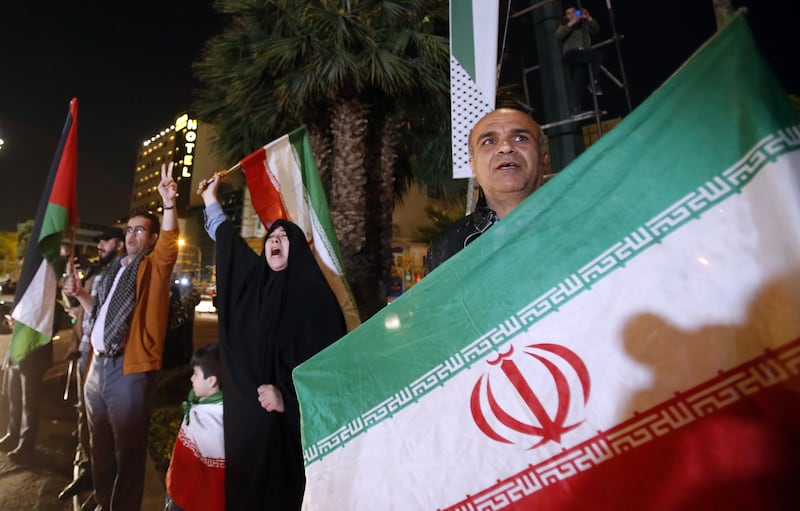Live updates: Follow the latest on Israel-Gaza
Israel carried out a military strike on Iranian territory on Friday, less than a week after Tehran's rocket and drone barrage, the latest escalation that is stoking fears of a regional war.
Two Israeli and three Iranian officials confirmed the strike, The New York Times said, while CNN reported a “senior US official” saying Israel was behind the attack.
There were also reports of an Israeli strike in southern Syria.
Iran's state news agency Irna reported a military official in the central Iranian city of Isfahan, Brig Gen Mihan Dost, as saying loud noises heard east of the city were the sound of air defence systems intercepting what he called a “suspicious target” and that no damage was reported in the area.
Iran said it had largely foiled the attack.
Several drones “have been successfully shot down by the country's air defence, there are no reports of a missile attack for now”, Iran's space agency spokesman Hossein Dalirian said on X.
The International Atomic Energy Agency confirmed Iran’s nuclear infrastructure was not damaged.
“Nuclear facilities should never be a target in military conflicts,” the UN body wrote on X. “IAEA is monitoring the situation very closely.”

Iran's largest nuclear research complex is next to Isfahan. Israel has long warned of the consequences of Iran acquiring a nuclear weapon.
The Fars news agency said “three explosions” were heard near the Shekari military airbase near Isfahan on Friday.
The US had received advance notice of the strike but did not endorse the operation or play any part in its execution, NBC and CNN reported, citing a number of sources and a US official.
Israel has yet to claim the attack.
Israeli security officials said that their country would not publicly admit responsibility, to avoid escalation, The Jerusalem Post reported.
There were mixed reactions among Israeli politicians about the strikes.
Far-right National Security Minister Itamar Ben-Gvir wrote “lame!” on X on Friday morning, for which he was widely criticised.
Soon after, opposition leader Yair Lapid wrote on X that “in an unforgivable, one-word tweet, Ben-Gvir managed to make Israel into a laughing stock, shaming Israel from Tehran to Washington”.
According to one local Iranian news outlet, explosions were reported in Qahjaverestan, close to Isfahan city and near the 8th Shekari Airbase and Isfahan Airport.
The semi-official Fars and Tasnim news agencies reported the sound of blasts, without elaborating. State TV acknowledged a “loud noise” was heard in the area.
A senior commander in Iran’s Islamic Revolutionary Guard Corps was earlier quoted by Irna as saying the country’s nuclear complexes were fully secure.
Iran has its finger on the trigger to fire powerful missiles in response to any attack by Israel, the agency reported, citing Brig Gen Ahmad Haghtalab.
On Saturday, Israel worked with the US and several other nations to block a barrage of 300 missiles and drones.
Israel claimed 99 per cent were stopped before they could inflict serious damage.
Iran said the attack was in response to Israel's bombing of an Iranian consulate building in Damascus on April 1, in which IRGC commanders and other officers were killed.
Fearful of an escalating retaliatory scenario that could drag the region into a broader war, the US and other countries have been pushing Israel to moderate its response.
Ursula von der Leyen, President of the European Commission, on Friday called on Israel and Iran to “refrain from escalation”.
“It is absolutely necessary that the region stays stable and that all sides refrain from further action,” the EU chief said on a visit to Finland.
Finnish Prime Minister Petteri Orpo urged the two sides to “stop attacking each other” in what he called a worrying situation.
“The situation is very dangerous,” he said.
In Syria, a military position in the country's south was attacked, the government in Damascus and a war monitor said.
Syria's Defence Ministry said “the Israeli enemy carried out an attack using missiles … targeting our air defence sites in the southern region” and causing material damage.
The Syrian Observatory for Human Rights war monitor said Israel hit an army radar position in the southern province of Deraa that had detected the entry of Israeli planes into Syria's airspace.
Rami Abdel Rahman, head of the Britain-based observatory, said the strikes took place “at a time when the Israeli air force was flying intensively over the Deraa region”, without Syrian air defences taking any action.
